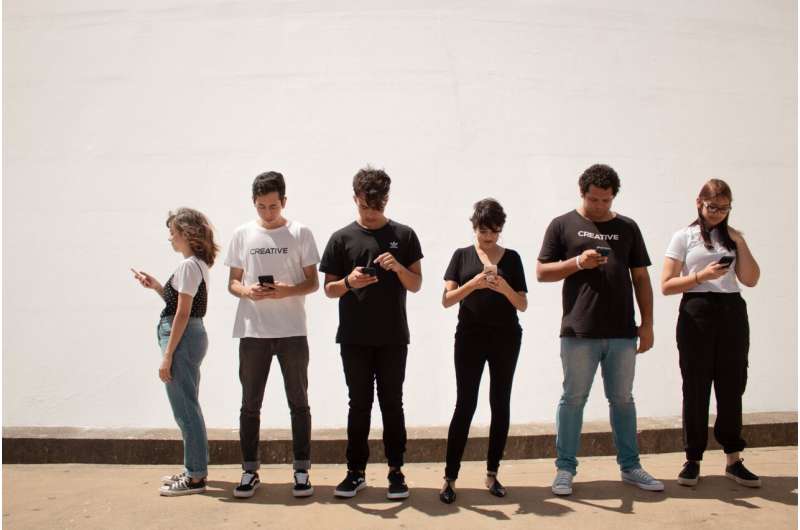Fake news and fact-checking: Study examines social media use during the pandemic

Social media was used to both spread misinformation and for fact-checking during the height of the COVID-19 pandemic, according to a new study which explores how individuals perceive and make sense of information they encounter during times of global crisis.
Psychologists at Nottingham Trent University (NTU) carried out 24 semi-structured interviews with people aged 18–56 to understand how they made sense of and interacted with news they suspected to be fake.
According to an Ofcom report commissioned in the first week of the UK lockdown, 49% of individuals used social media to access news and information about COVID-19, and 46% stated they had seen false or misleading information related to the pandemic.
Participants in the study described how they encountered information overload in the initial weeks of the pandemic and struggled with complex messaging from official sources, so turned to 'simplified' social media news feeds.
However, they would still use various sources to triangulate the trustworthiness of news stories. These included daily UK government briefings, the World Health Organization, traditional print and broadcast media, and the social media channels of reputable organizations.
They also on relied on opinion leaders within their networks, such as "experts" in the form of social posts from medics, patients and nurses.
Some revealed that they psychologically distanced themselves from people who were perceived as generating debate about news and fake news and would avoid platforms such as Facebook, where opinion and misinformation were seen to be more prevalent, in favor of those such as Instagram and Snapchat.
Their news consumption on social media was transformed from actively engaging in content creation and sharing, to instead observing news stories as they unfolded on their social media channels.
Despite this reluctance to engage with the spread of misinformation, some participants revealed that they too had shared content before assessing the validity of information. This happened when they judged information on its ability to support social connections and on whether it would offer new insights or an amusing or positive update. Common-sense assumptions and biases—such as political views—also impacted on information appraisal.
Dr. Lee Hadlington, senior lecturer in Cyberpsychology at NTU's School of Social Sciences, said: "We know that the consequences of fake news are far from trivial. Research has already shown that it can lead to the misallocation of resources, foster feelings of inefficiency, alienation and cynicism, undermine the legitimacy of established organizations and, importantly, become a barrier to communicating essential information at a time of crisis.
"Our findings indicate that the coronavirus pandemic has acted as a perfect storm for fake news, with individuals using social media to stay social, engaging in some fact-checking and distancing themselves from people they see as "fake-newsers," or those who share fake news with their networks. However, we also saw that emotional reactions to the negative information, whether in humor, frustration, or in worry, led to information being shared."
Based on the results of the study, the researchers recommend that the social media industry, clinicians, researchers, governments, social media users and their communities join together to raise awareness of the impact of fake news on behavior and wellbeing. They also suggest that guidelines and policies are developed accordingly, including public awareness campaigns and strategies to identify fake news and curb exposure to it on social media platforms.
The paper, "Perceptions of fake news, misinformation and disinformation amid the COVID-19 Pandemic: A qualitative exploration," is soon to be published in the journal Psychology of Popular Media.
Provided by Nottingham Trent University




















